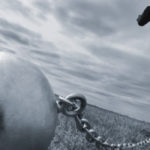Men are saturated with positive thinking and encouragement when they come into recovery from addiction. Without a core belief that they can get sober and that they can stay sober, men are challenged to find inspiration for doing the work required for both. Often, men are taught that there is no room for pessimism in recovery from addiction because negative thinking can stimulate the addicted brain. With or without addiction, the brain is prone toward noticing negativity so that it can plan appropriately in defense. For men who have become addicted in their lives, that negativity can take a quick spin because the brain’s defense program has become drugs. Thus, optimism is seen as the necessary antidote to brush aside the need to use and create no need to use.
However, the power of positive thinking creates a bit of delusion and imbalance. To say that a negative thought will never enter a man’s mind is to speak lunacy. Negative thinking does happen. When negative thinking happens, it cannot be seen as a flaw or failure of a man’s recovery. Instead, negative thinking needs to be acknowledged, welcomed, and harnessed for good use. This is where pessimism has a place in recovery.
Julie Norem wrote the book on a specific kind of pessimism called defensive pessimism. In an interview with The Atlantic, she explains that defensive pessimism is “…a strategy for dealing with anxiety and helping to manage anxiety so that it doesn’t negatively influence performance.” Instead of running away from anxiety-induced negative thinking toward positive thinking, defensive pessimism offers a different approach. “When people are being defensively pessimistic,” Norem elaborates, “they set low expectations, but then they take the next step which is to think through in concrete and vivid ways what exactly might go wrong.” According to the research, Norem states, planning for disaster in a specific way helps defensive pessimists perform better because “It helps them direct their anxiety toward productive activity.”
Living in a constant state of optimism isn’t always realistic. Men who have lived with active addiction are aware of this perhaps more than anyone. Life can get bad, life can get worse, life can get worse than we can plan for. Living in anxiety or living in blind faith isn’t necessarily living in preparedness. Pessimism doesn’t have to make someone a “debbie downer” when they are living in a way which prepares them for what could be a worst case scenario. Treatment teaches men how to prepare to deal with life in all of life’s circumstances. A little pessimism, defensively strategized, can greatly help men do just that.
Tree House Recovery in Portland, Oregon, helps men find freedom from addiction by creating a sustainable recovery through sustainable change. Call us today for information on our men’s treatment programs, our innovative approach to recovery, and our proven techniques for transformation: (503) 850-2474




